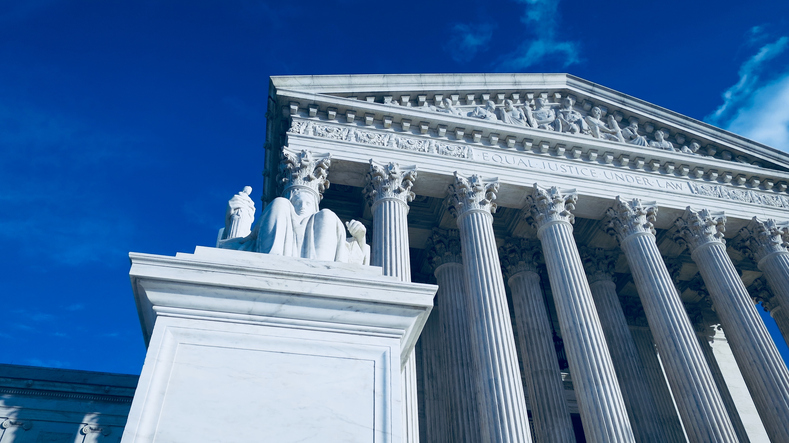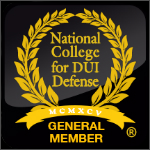With the recent vacancy on the US Supreme Court and President Trump’s appointment of Brett Kavanaugh, there is a lot of talk in the media concerning the Supreme Court and the Supreme Court Justices. The media, however, can only seem to focus on political affiliation and dramatize potential changes. In truth, the Supreme Court has been one of the most steady and true branches of our government since its creation. It so closely resembles the same institution that first met in 1790 that one legal historian has called it, “the first Court still sitting.”
 As a criminal defense attorney, rulings by the Supreme Court directly impact not only what happens day to day in court, but also our liberties as a free society. Therefore, it is important to stay on top of what the court rules. But first I want to start with a basic overview of the Supreme Court, the Justices and what their traditional role is and should be.
As a criminal defense attorney, rulings by the Supreme Court directly impact not only what happens day to day in court, but also our liberties as a free society. Therefore, it is important to stay on top of what the court rules. But first I want to start with a basic overview of the Supreme Court, the Justices and what their traditional role is and should be.
The Constitution originally established the Judiciary Branch of government but did not establish the exact powers or organization, instead of leaving that up to Congress. Consequently, the very first bill introduced in the Senate was the Judiciary Act of 1789 – which divided the United States into districts, circuits and established the Supreme Court as the highest judicial tribunal. It was originally composed of a Chief Justice and five associate judges.
When a vacancy exists on the court, appointing a new Justice requires both the Executive and Legislative Branch of government. The potential justice is appointed by the Executive Branch (the President of the United States) and confirmed by the Legislative (the Senate). In this way, both branches have a say in the composition of the court. To ensure an independent Judiciary and to protect judges from partisan pressures, the Constitution provides that judges serve during “good Behavior,” which has generally meant life terms. To further assure their independence, the Constitution provides that judges’ salaries may not be diminished while they are in office. (1)
Justices
It is important to note that when Justices are sworn in, they must take two oaths – a Constitutional Oath and a Judicial Oath.
The Constitutional oath says –
“I, _________, do solemnly swear (or affirm) that I will support and defend the Constitution of the United States against all enemies, foreign and domestic; that I will bear true faith and allegiance to the same; that I take this obligation freely, without any mental reservation or purpose of evasion; and that I will well and faithfully discharge the duties of the office on which I am about to enter. So help me God.”
The Judicial oath says –
“I, _________, do solemnly swear (or affirm) that I will administer justice without respect to persons, and do equal right to the poor and to the rich, and that I will faithfully and impartially discharge and perform all the duties incumbent upon me as _________ under the Constitution and laws of the United States. So help me God.”
Justices understand that by taking these oaths they are held to the highest standard. They take these oaths extremely serious and over the course of the last 220 years have faithfully performed their duties with honor and respect.
Written above the main entrance to the Supreme Court at the words “EQUAL JUSTICE UNDER THE LAW” which expresses the main responsibility of the Supreme Court – ensuring the American people the promise of equal justice under the law.(1) The Framers of the US Constitution designed a Constitution that carefully balanced the need for a national government to provide order with the individual’s rights to freedom. It is the role of The Court to guard and interpret the Constitution in a constantly changing environment.
Chief Justice Marshall expressed the challenge which the Supreme Court faces in maintaining free government by noting: “We must never forget that it is a constitution we are expounding . . . intended to endure for ages to come, and consequently, to be adapted to the various crises of human affairs.”(1)
It is important to note that while our media focuses on the fate of one or two cases, the Court grants and hears approximately 80 cases each year. Eighty times each year, the Justices make a ruling that will stand for years to come and has long-reaching effects for every citizen.
Concerning criminal law, there are multiple Supreme Court rulings that have altered or preserved our freedoms. Landmark cases have been decided in the areas of freedom from unreasonable search and seizures, your right to an attorney, your rights regarding counsel, your right to remain silent, competency rights, capital punishment, juvenile rights and rights concerning sentencing. For example, the Supreme Court recently upheld our rights as citizens to be free from unreasonable search and seizures by ruling in Carpenter vs. US that the government needs a search warrant (as opposed to a court order of disclosure) to get comprehensive cell phone location data. This is a huge win for American citizens.
The Supreme Court plays a crucial role in protecting the Constitution and our rights as citizens. Regardless of your political affiliation, Justices that belief in upholding the original intent of the Constitution is important to the long-term success of our country.
(1)About our Supreme Court









